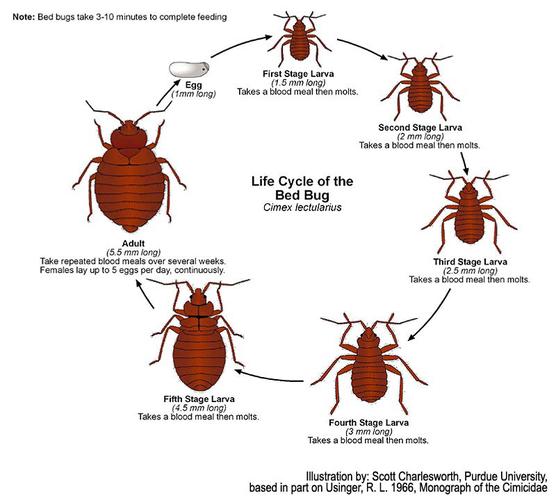
How to Treat Bed Bug Bites
Bed bug bites can be quite uncomfortable and itchy, but with the right treatment, you can alleviate the symptoms and prevent an infection. Here’s a detailed guide on how to treat bed bug bites effectively.
Understanding Bed Bug Bites
Before diving into the treatment options, it’s important to understand what bed bug bites look like and how they differ from other insect bites. Bed bugs are small, flat, brown insects that feed on human blood. Their bites often appear as small, red bumps on the skin, usually in a line or cluster. Unlike mosquito bites, bed bug bites are not typically painful at the time of the bite, but they can become itchy and inflamed later.
Bed bug bites can be difficult to diagnose because they often resemble other insect bites, such as those from mosquitoes or fleas. However, there are a few key characteristics that can help you identify bed bug bites:
-
Small, red bumps that may appear in a line or cluster

-
Itching and inflammation that may occur hours or even days after the bite
-
Bites that are often found on exposed skin, such as the arms, legs, and face
Immediate Treatment
The first step in treating bed bug bites is to clean the area to prevent infection. Here’s what you should do immediately after discovering a bite:
1. Wash the bite area with soap and water to remove any bacteria.
2. Apply an antiseptic ointment, such as Neosporin, to prevent infection.

3. Gently pat the area dry with a clean towel.
Home Remedies for Relief
In addition to immediate treatment, there are several home remedies that can help alleviate the itching and inflammation associated with bed bug bites:
1. Cold Compress
A cold compress can help reduce swelling and numb the area, providing temporary relief from itching. Simply wrap a few ice cubes in a clean cloth and apply it to the bite for 10-15 minutes at a time.
2. Baking Soda Paste
Baking soda is a natural antiseptic and can help soothe the skin. Mix a small amount of baking soda with water to create a paste, then apply it to the bite and let it dry. Once dry, gently wash it off with warm water.
3. Tea Tree Oil
Tea tree oil has antibacterial and antifungal properties that can help reduce inflammation and prevent infection. Dilute a few drops of tea tree oil with a carrier oil, such as coconut oil, and apply it to the bite. Be cautious, as tea tree oil can be irritating to some people.
4. Aloe Vera
Aloe vera is known for its soothing properties. Apply fresh aloe vera gel directly to the bite for immediate relief.
5. Hydrocortisone Cream
Hydrocortisone cream is a common over-the-counter medication that can help reduce itching and inflammation. Apply it to the bite as directed on the label.
6. Calamine Lotion
Calamine lotion can help soothe the skin and reduce itching. Apply it to the bite as needed.
7. Oatmeal Baths
Soaking in an oatmeal bath can help alleviate itching and inflammation. Mix a cup of colloidal oatmeal into a warm bath and soak for 15-20 minutes.
When to Seek Medical Attention
In most cases, bed bug bites can be treated at home with over-the-counter remedies. However, there are a few situations where you should seek medical attention:
1. If you have a severe allergic reaction to bed bug bites, such as difficulty breathing, swelling of the throat, or hives.
2. If the bite becomes infected, characterized by increased pain, redness, swelling, or pus.
3. If you have a compromised immune system and are at a higher risk of infection.
Preventing Future Bites
The best way to treat bed bug bites is to prevent them from happening in the first place. Here are some tips to help you avoid bed bugs:
1. Inspect your hotel room or Airbnb for signs of bed bugs before you settle in.
2. Keep your living space clean and clutter-free, as bed bugs thrive in dusty, cluttered environments.





